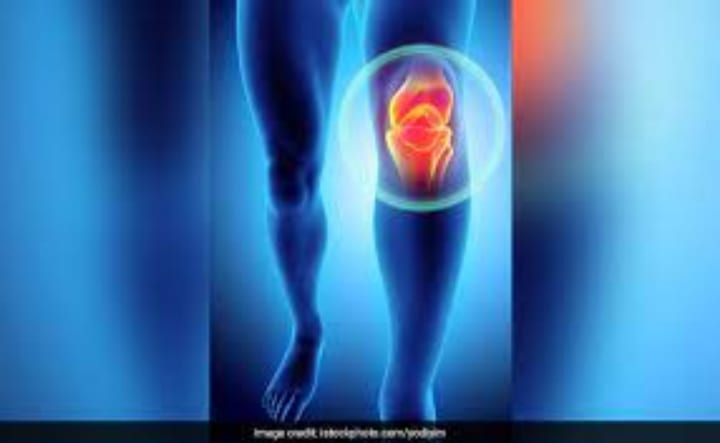Weight loss to help knee pain
Don't worry.. problem solved..!

Introduction:
Weight loss plays a crucial role in managing knee pain, as excess weight places undue stress on the knee joints. In this section, we will explore the relationship between weight and knee pain, the impact of weight loss on knee pain reduction, and the scientific evidence supporting this correlation. Additionally, we will delve into the broader health benefits that weight loss offers beyond alleviating knee pain.
Relationship between weight and knee pain: The human knee is a complex joint responsible for bearing the body's weight and facilitating movement. Excessive body weight can significantly impact the knees, leading to pain and discomfort. Every extra pound places approximately four times the amount of pressure on the knee joint, thereby increasing the risk of joint deterioration and injury.
Impact of weight loss on knee pain:Weight loss has been shown to have a profound positive effect on reducing knee pain. By shedding excess weight, individuals can alleviate pressure on the knee joints, allowing them to function more efficiently. This, in turn, can result in decreased pain, improved mobility, and an enhanced quality of life for those suffering from knee pain.
Scientific evidence supporting weight loss for knee pain:Several scientific studies have demonstrated the efficacy of weight loss in alleviating knee pain. A study published in Arthritis & Rheumatism examined overweight and obese individuals with knee osteoarthritis and found that for every pound lost, there was a fourfold reduction in the load exerted on the knee joint. Moreover, a systematic review conducted by the Cochrane Collaboration concluded that weight loss achieved through a combination of diet and exercise resulted in significant pain reduction and improved physical function in individuals with knee osteoarthritis.
Health benefits beyond knee pain:While the primary focus of weight loss for individuals with knee pain is often pain reduction, it is important to highlight the broader health benefits that come with shedding excess weight. Weight loss can lead to a decreased risk of developing chronic conditions, such as osteoarthritis, cardiovascular disease, and type 2 diabetes. Furthermore, it can improve overall physical fitness, enhance self-esteem, and boost mental well-being, fostering a more active and fulfilling lifestyle.
DON'T WAIT TO LOOK AND FEEL YOUR BEST – TRY OUR WEIGHT LOSS PROGRAM NOW..! https://tinyurl.com/yc8bwv6x

When it comes to weight loss for alleviating knee pain, implementing effective strategies is essential. In this section, we will explore various approaches that can aid in weight loss while minimizing stress on the knees. We will discuss diet modifications, exercise and physical activity, lifestyle changes, and the importance of seeking professional guidance for creating a personalized weight loss plan.
Diet modifications:A healthy, balanced diet plays a fundamental role in weight loss. To promote weight loss and support knee health, individuals should focus on nutrient-rich foods while controlling portion sizes. Incorporating a variety of fruits, vegetables, lean proteins, whole grains, and healthy fats is crucial. It is important to avoid highly processed foods, sugary snacks, and beverages, as they often contribute to weight gain and inflammation, which can exacerbate knee pain. Consulting a registered dietitian can provide individuals with expert guidance to create a personalized meal plan that meets their nutritional needs and weight loss goals.
Exercise and physical activity:Exercise is an integral part of any weight loss plan, but it is important to choose activities that minimize impact on the knees. Low-impact exercises are ideal for reducing knee pain while burning calories. Swimming, cycling, using an elliptical machine, or practicing yoga are excellent choices. These activities provide cardiovascular benefits without placing excessive strain on the knee joints. Additionally, incorporating strength training exercises to improve muscle strength and stability can help support the knees. Exercises that target the muscles surrounding the knees, such as leg presses, lunges, and squats, can be beneficial. Working with a certified fitness professional or physical therapist can ensure proper form and technique to avoid further knee injury.
Lifestyle changes:In addition to diet and exercise, certain lifestyle modifications can support weight loss efforts and relieve knee pain. Reducing sedentary behavior and incorporating more physical activity into daily routines is essential. Taking short walks, opting for stairs instead of elevators, and parking farther away from destinations can all contribute to increased calorie burn and improved knee health. Getting adequate sleep is crucial, as lack of sleep can affect hormone levels and lead to weight gain. Managing stress through relaxation techniques, such as meditation or deep breathing exercises, can also play a role in weight loss and pain management. Avoiding excessive alcohol consumption is important, as it can interfere with weight loss efforts and contribute to inflammation.
Seeking professional guidance:Individuals with knee pain seeking weight loss should consult healthcare professionals who can provide personalized guidance. Doctors, physical therapists, and registered dietitians can assess the individual's knee condition, health history, and specific needs. They can then create a tailored weight loss plan that considers any limitations or restrictions due to knee pain. These professionals can offer valuable advice, monitor progress, and make adjustments as needed. Working with a healthcare team ensures a safe and effective weight loss journey that addresses the individual's unique circumstances.
DON'T WAIT TO LOOK AND FEEL YOUR BEST – TRY OUR WEIGHT LOSS PROGRAM NOW..! https://tinyurl.com/yc8bwv6x
In conclusion, weight loss is a key factor in alleviating knee pain. Excess weight places additional stress on the knee joints, leading to pain and discomfort. By adopting strategies such as diet modifications, low-impact exercises, lifestyle changes, and seeking professional guidance, individuals can effectively lose weight and reduce the strain on their knees. Scientific evidence supports the positive impact of weight loss on knee pain reduction, highlighting the importance of a comprehensive approach. Furthermore, weight loss offers broader health benefits beyond knee pain relief, including a decreased risk of chronic conditions and improved overall well-being. Prioritizing weight loss can lead to a healthier, more active life with reduced knee pain.
About the Creator
Enjoyed the story? Support the Creator.
Subscribe for free to receive all their stories in your feed. You could also pledge your support or give them a one-off tip, letting them know you appreciate their work.






Comments
There are no comments for this story
Be the first to respond and start the conversation.